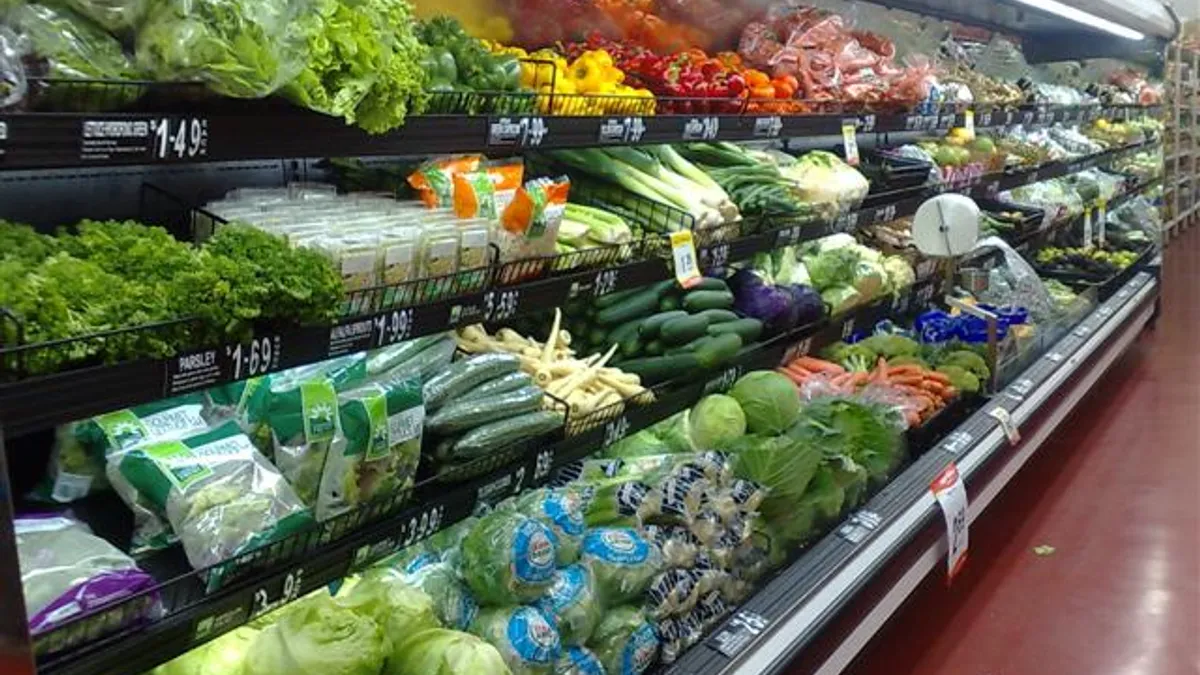Dive Brief:
-
Supervalu announced it is exiting its Farm Fresh banner, according to a news release. The wholesaler/retailer has reached agreements with three retailers — Harris Teeter, Kroger and Food Lion — to sell 21 of the chain’s 38 stores for $43 million in cash.
-
Harris Teeter will pick up 10 stores, including six in-store pharmacies and three fuel centers. Kroger’s Mid-Atlantic division will pick up eight stores, including eight in-store pharmacies and three fuel centers. And Food Lion has agreed to buy three stores, all of which have in-store pharmacies. The transactions were unanimously approved by Supervalu’s board and are expected to close in May.
-
Supervalu says it is in discussions over the sale of its remaining 17 stores to wholesale clients and to “certain Farm Fresh employees.”
Dive Insight:
This move should further focus the company on what’s become its core business — wholesaling. Supervalu’s retail division has become a drag on profits over the past few years, with stores struggling to stand out against stronger, more price-aggressive competitors.
Supervalu’s stock surged 8% in late trading Wednesday, after the Farm Fresh sales were announced.
“Exiting the Farm Fresh banner will enable us to allocate greater resources and energy toward the strategic growth of our wholesale business,” CEO Mark Gross said in a statement.
Farm Fresh has struggled to stand out in competitive mid-Atlantic markets, which now include discounters and specialty chains along with strong brands like Harris Teeter and Publix. Analysts interviewed by The Virginian-Pilot, which recently reported that the chain might be up for sale, note the company’s prices are too high, and that close competitors like Food Lion have eclipsed it with remodels and stronger in-store execution.
The sell-off comes a little more than a year after Supervalu offloaded its nearly 1,400 Save-A-Lot stores to Canadian private equity firm Onex Corp. for $1.4 billion. Supervalu is also closing underperforming stores as it continues to shift its focus to the more stable, though still challenging, wholesale industry.
“We also continue to aggressively pursue other important initiatives, including the monetization of real estate through sale leaseback transactions and cost reduction across the company,” Gross said. “We are confident our efforts are driving growth and enhancing our competitive position.”
Supervalu has come under pressure from activist investor Blackwells Capital, which launched a proxy fight recently as it nominated its own directors for the company’s board elections this summer. The firm, which owns a 3.6% stake in Supervalu, has pressured it to sell off stores and improve its operations. The Farm Fresh sale should please Blackwells, and could cause it to call off its proxy challenge.
Challenges still loom for the 180 or so stores remaining in Supervalu’s retail division, which includes the Cub Foods, Hornbacher’s, Shop ‘n Save and Rainbow banners. In the Twin Cities, Cub Foods is under fire from Hy-Vee, Target and other competitors that are chipping away at the brand’s leading market share. Supervalu has remodeled some stores with a focus on fresh and prepared foods, but so far these haven’t had an impact on its retail bottom line.









